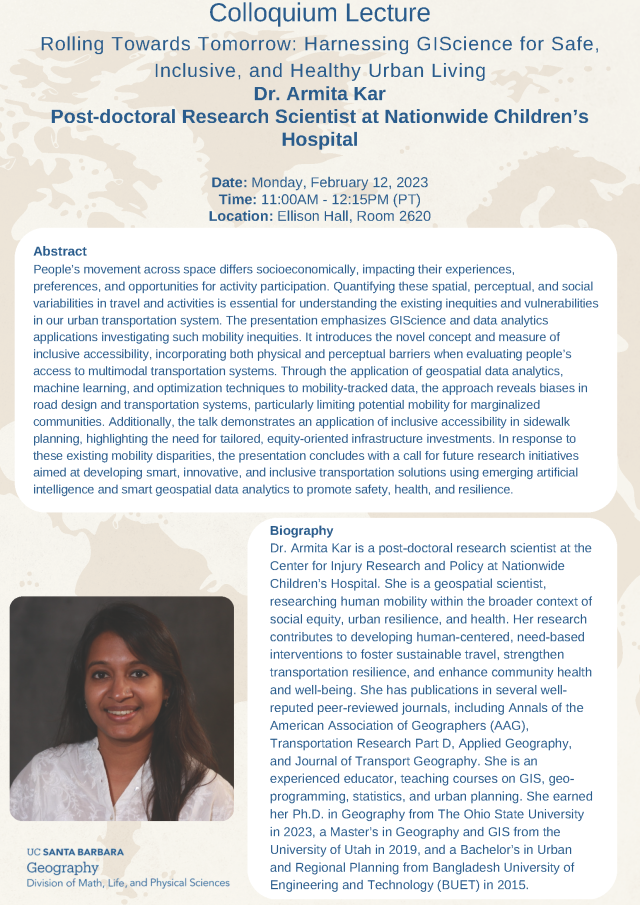Geography Colloquium Series: Harnessing GIScience for Safe, Inclusive, and Healthy Urban Living

Join us Monday, February 12th to hear Dr. Kar discuss her work: Harnessing GIScience for Safe, Inclusive, and Healthy Urban Living
Abstract
People's movement across space differs socioeconomically, impacting their experiences, preferences, and opportunities for activity participation. Quantifying these spatial, perceptual, and social variabilities in travel and activities is essential for understanding the existing inequities and vulnerabilities in our urban transportation system. The presentation emphasizes GIScience and data analytics applications investigating such mobility inequities. It introduces the novel concept and measure of inclusive accessibility, incorporating both physical and perceptual barriers when evaluating people's access to multimodal transportation systems. Through the application of geospatial data analytics, machine learning, and optimization techniques to mobility-tracked data, the approach reveals biases in road design and transportation systems, particularly limiting potential mobility for marginalized communities. Additionally, the talk demonstrates an application of inclusive accessibility in sidewalk planning, highlighting the need for tailored, equity-oriented infrastructure investments. In response to these existing mobility disparities, the presentation concludes with a call for future research initiatives aimed at developing smart, innovative, and inclusive transportation solutions using emerging artificial intelligence and smart geospatial data analytics to promote safety, health, and resilience.
Biography
Dr. Armita Kar is a post-doctoral research scientist at the Center for Injury Research and Policy at Nationwide Children's Hospital. She is a geospatial scientist, researching human mobility within the broader context of social equity, urban resilience, and health. Her research contributes to developing human-centered, need-based interventions to foster sustainable travel, strengthen transportation resilience, and enhance community health and well-being. She has publications in several well-reputed peer-reviewed journals, including Annals of the American Association of Geographers (AAG), Transportation Research Part D, Applied Geography, and Journal of Transport Geography. She is an experienced educator, teaching courses on GIS, geo-programming, statistics, and urban planning. She earned her Ph.D. in Geography from The Ohio State University in 2023, a Master's in Geography and GIS from the University of Utah in 2019, and a Bachelor's in Urban and Regional Planning from Bangladesh University of Engineering and Technology (BUET) in 2015.